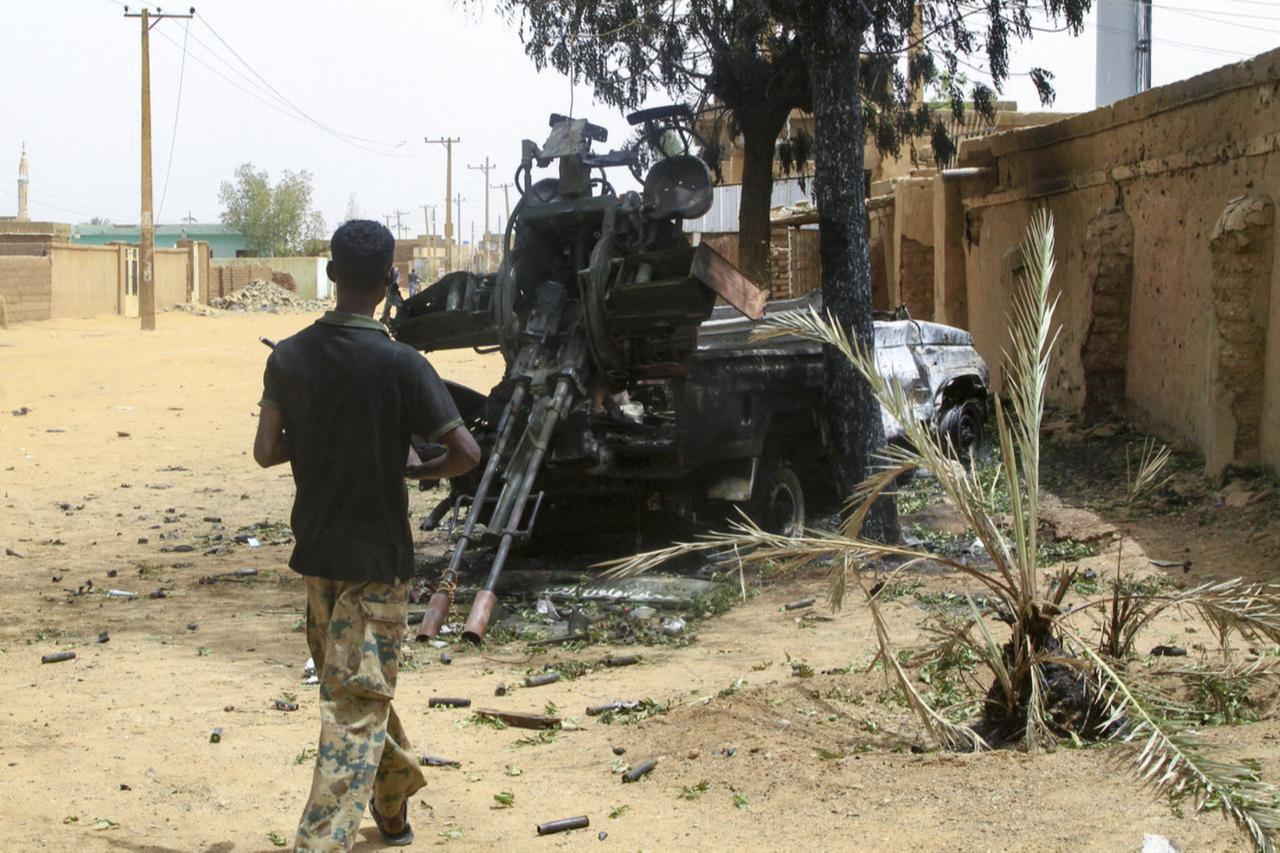
At least 7,455 people were displaced from the besieged city of el-Fasher in western Sudan in a single day due to attacks by the paramilitary Rapid Support Forces (RSF), bringing the total number to 33,485 over three days, the International Organization for Migration (IOM) said late Tuesday.
For several days, Sudanese authorities and international and U.N. organizations have accused the RSF of committing “massacres and humanitarian violations” against civilians in el-Fasher, including “summary executions,” arrests and forced displacement, as the group began storming the city Sunday after besieging it for more than a year.
The IOM said its field teams estimated the displacement of an additional 7,455 people on Oct. 28 due to continued fighting in el-Fasher. Reports indicate that a total of 33,485 people were displaced between Oct. 26 and 28. According to the agency, most of the displaced fled to rural areas within el-Fasher locality, while others reached Tawila, Mellit and Kebkabiya to the west.
Unofficial estimates suggest that before the RSF’s incursion, el-Fasher had a population of about 500,000, while around 1 million of its residents had already been displaced in recent years.
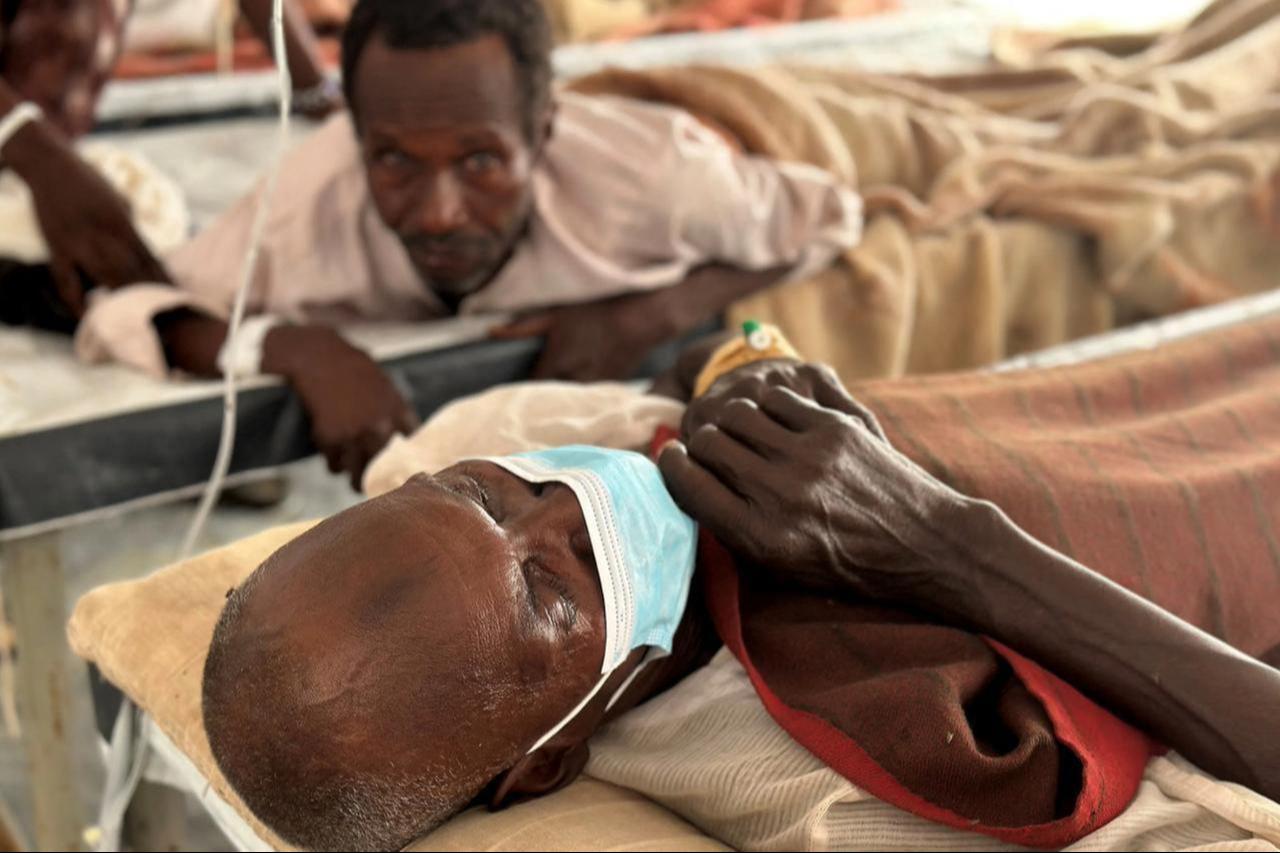
The el-Fasher Resistance Coordination, a local committee, said that “all the wounded and injured inside the Saudi (Maternity) Hospital were collectively executed by Janjaweed militias (RSF),” describing the killings as “horrific.”
It added that “hospitals fell into a terrifying silence, broken only by groans that suddenly ceased.”
The Sudan Doctors Network also accused the RSF of killing civilians based on ethnicity and plundering medical facilities in el-Fasher. “The RSF killed unarmed civilians on ethnic grounds in what amounts to an act of ethnic cleansing,” the group said.
Emergency Lawyers, an independent Sudanese legal group, similarly accused the RSF of committing massacres against civilians in Bara city of North Kordofan, where 47 civilians, including nine women, were killed inside their homes.
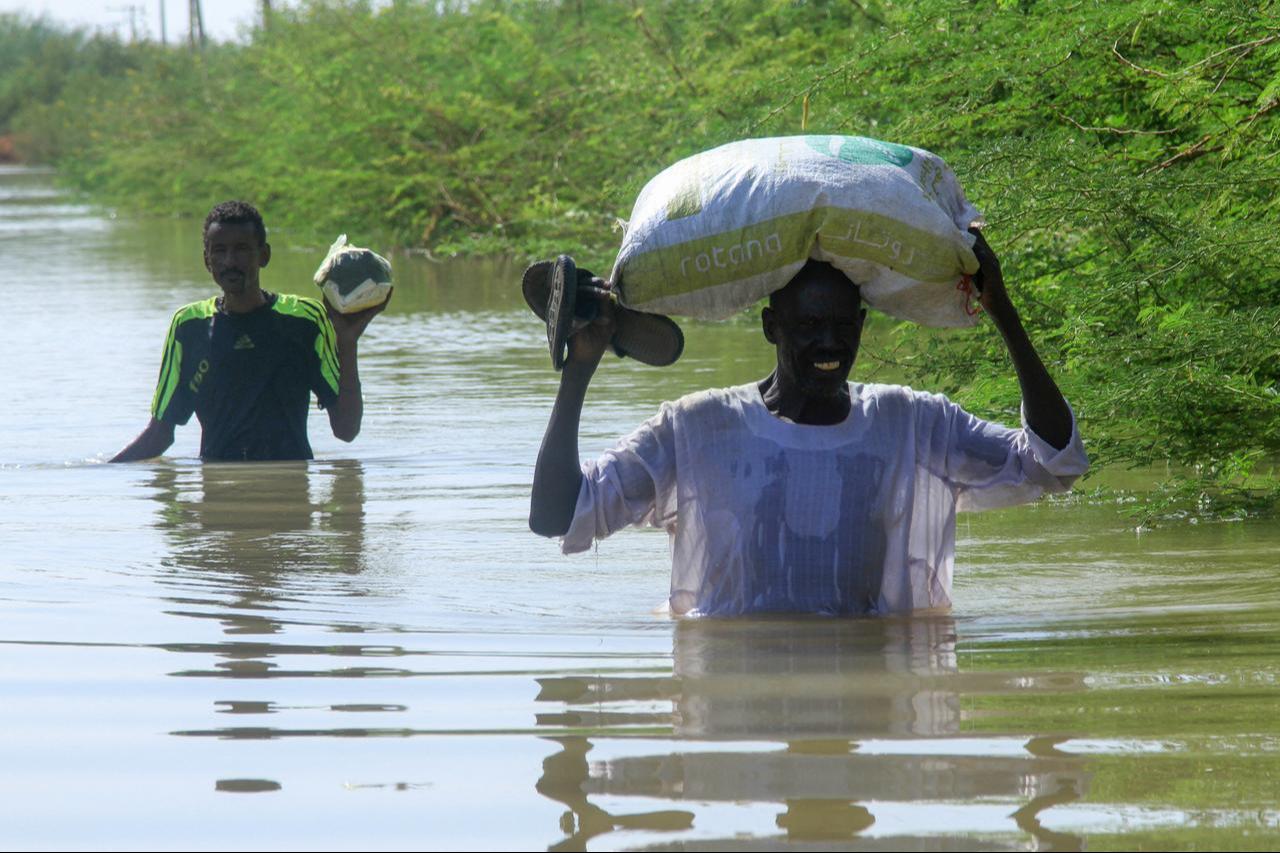
A report by the Humanitarian Research Lab (HRL) at Yale School of Public Health provided satellite imagery consistent with mass killings carried out by the RSF after capturing el-Fasher.
The analysis identified images of bodies on the ground, civilians fleeing the city, and RSF control of all Sudanese Armed Forces (SAF) military installations.
HRL said RSF vehicles were seen in tactical formations consistent with “house-to-house clearance operations” in Daraja Oula neighborhood, where civilians had recently sought refuge. The report also confirmed RSF control over the SAF Sixth Division headquarters and the city’s airfield, as well as the presence of battle tanks in the area.
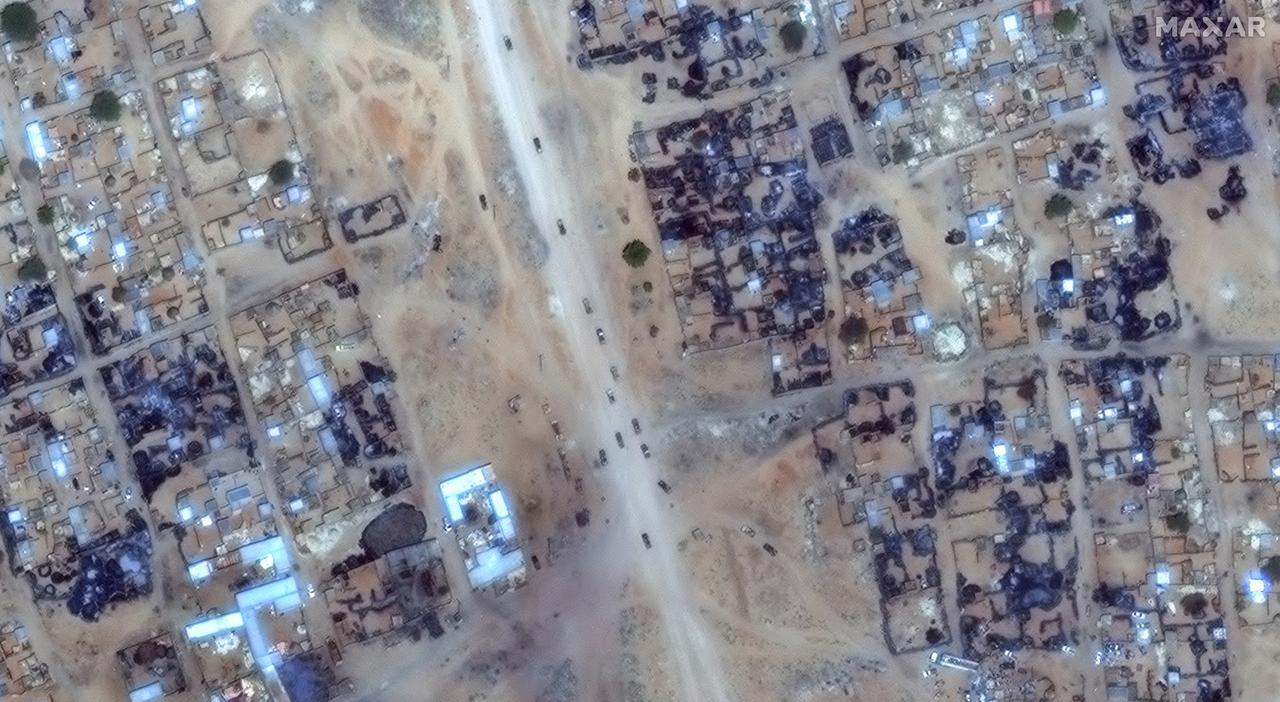
The Arab League condemned the “atrocious crimes” committed against civilians in el-Fasher, calling for those responsible to be prosecuted and for an urgent ceasefire in the city, which has been under RSF siege for more than a year.
The European Union also warned that the RSF’s capture of el-Fasher could worsen the already dire humanitarian situation.
EU foreign policy chief Kaja Kallas and Crisis Management Commissioner Hadja Lahbib said that civilians in Sudan were being targeted based on ethnicity, describing the event as “a dangerous turning point in the war.”
They urged all sides to de-escalate tensions and comply with U.N. Security Council Resolution 2736, which calls for the protection of civilians and adherence to the Jeddah Declaration.
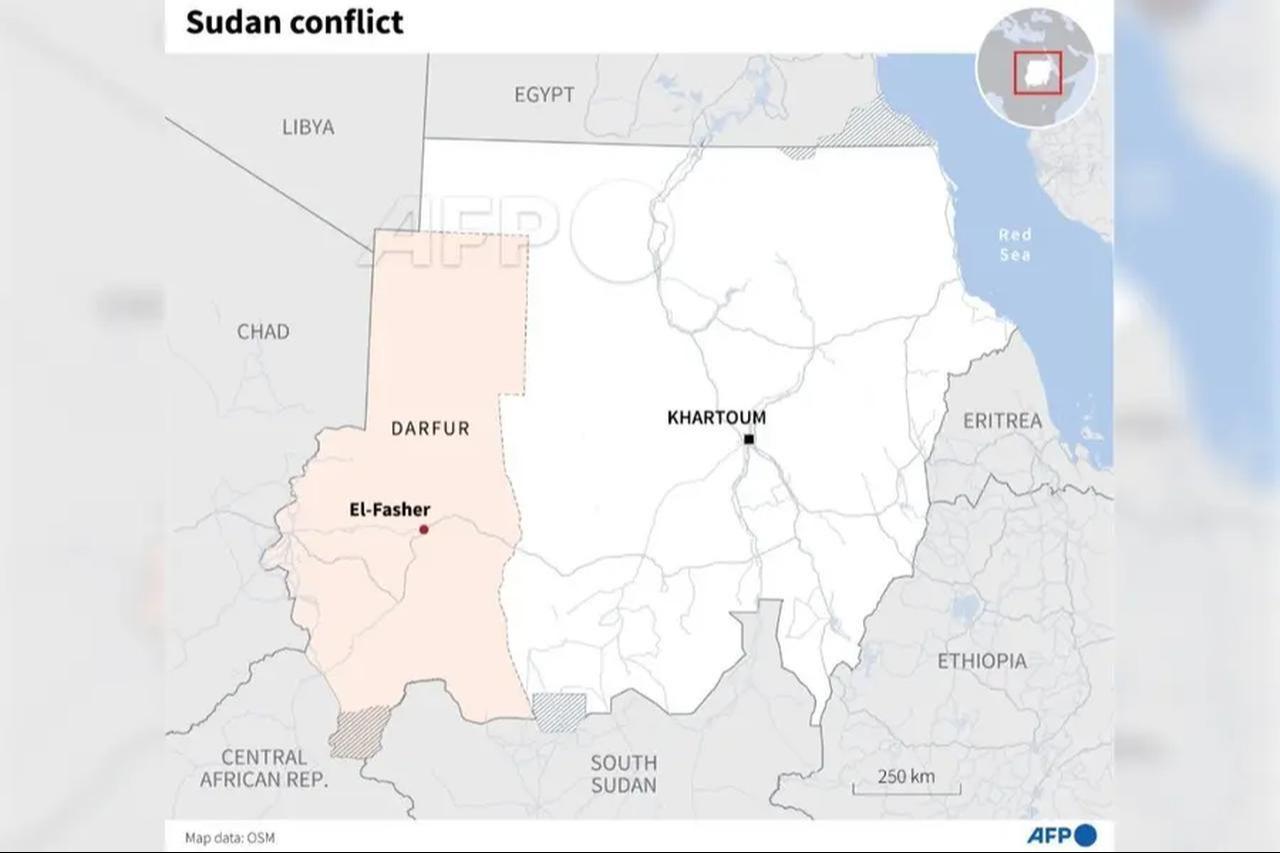
The U.N. has called for safe passage for civilians trapped in el-Fasher, following reports that RSF fighters seized control of the army’s main base.
U.N. Secretary-General António Guterres described the situation as a “terrible escalation,” while U.N. Human Rights Chief Volker Türk warned that “ethnically motivated violations and atrocities are mounting by the day.”
UN. .Resident and Humanitarian Coordinator in Sudan Denise Brown urged the RSF to allow civilians to leave safely. Doctors Without Borders (MSF) also called for immediate protection for civilians and safe access to aid.
The U.N.’s top humanitarian official Tom Fletcher said hundreds of thousands of civilians were “trapped, terrified, and starving” as fighting intensified. “Civilians must be allowed safe passage and be able to access aid,” he said.
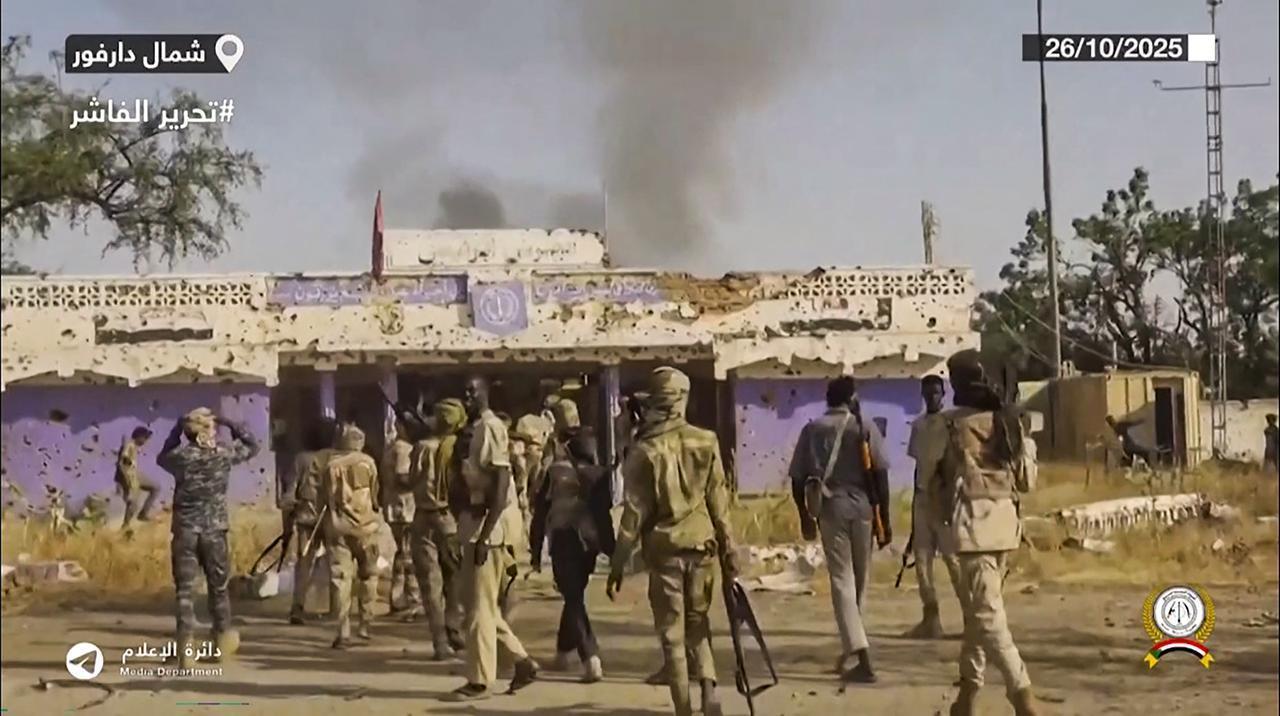
El-Fasher, the capital of North Darfur, is the last army-held city in the region and has been a focal point of Sudan’s civil war. RSF forces have surrounded the city for over 18 months, cutting off supplies and trapping nearly 250,000 people.
The Chairman of Sudan’s Transitional Sovereignty Council Abdel Fattah al-Burhan confirmed that the army withdrew from el-Fasher to prevent further “systematic destruction and killing” by the RSF.
Since April 2023, fighting between the Sudanese army and the RSF has killed over 150,000 people and displaced more than 15 million, creating one of the world’s worst humanitarian crises.